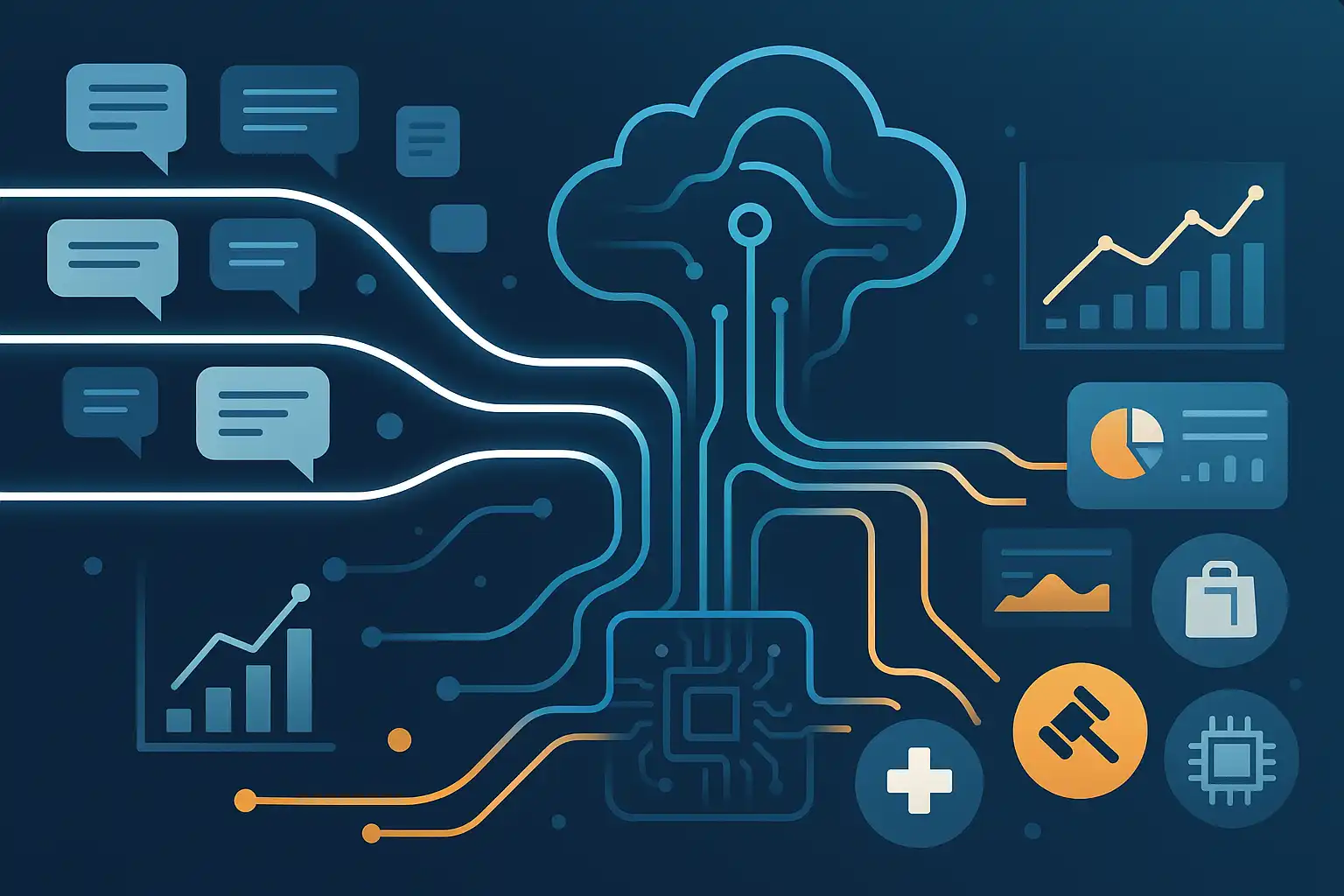
If you have ever wondered how computers understand, analyze, and even generate human language, the answer lies in the work of NLP companies. Natural Language Processing (NLP) companies harness powerful technologies to turn vast amounts of text and speech into valuable insights. These insights help organizations make better decisions, improve customer experiences, and unlock trends hidden in words. In this article, we explore how leading NLP companies work, why their solutions matter, and which industries benefit the most from their expertise.
What exactly do NLP companies do?
NLP companies specialize in the science of teaching machines to read, interpret, and respond to language as we do. Their main goal is to break down spoken or written communication into data that computers can process. This enables businesses and organizations to extract meaning from emails, chat messages, survey responses, documents, and even audio conversations. Applications range from customer support bots to real-time translation and text analysis in healthcare, finance, or e-commerce.
For example, if a bank wants to understand what thousands of customers are saying in feedback emails, an NLP company can analyze all this unstructured data quickly. The result is clear, actionable information like common complaints, positive trends, or urgent issues that need attention. The same process applies to social media listening, legal document review, and many more use cases.

How do NLP companies extract valuable insights from language data?
The process starts with advanced algorithms trained on millions of words and phrases. These algorithms can identify language patterns, spot relevant keywords, and even detect emotions or intent behind the words. Here’s how NLP companies typically approach language processing:
- Data Collection: Gather large sets of text or speech data from sources like emails, transcripts, websites, or call centers.
- Cleaning & Preprocessing: Remove noise such as typos, irrelevant words, or duplicates, and standardize the data for analysis.
- Language Understanding: Algorithms break sentences into parts, recognize names, places, and other key entities, and analyze grammar structure.
- Sentiment & Intent Detection: Systems assess the tone of language (positive, negative, neutral) and look for specific intentions, such as requests or complaints.
- Insight Generation: Results are summarized in dashboards, reports, or alerts so organizations can act on the findings.
In many cases, these steps happen in real time, which is especially useful for customer chatbots or monitoring brand reputation online. The ability to work with different languages, slang, or technical terms is what makes these tools so versatile and powerful.
Which industries benefit most from solutions provided by NLP companies?
Almost every industry now relies on some form of language data, but some sectors see especially strong benefits from NLP solutions:
- Healthcare: Hospitals and clinics use NLP to extract important information from patient records, doctor’s notes, and research articles. This speeds up diagnosis and research.
- Finance: Banks analyze customer communications, news headlines, and social posts to spot risks or investment opportunities.
- Retail & E-commerce: Brands extract insights from customer reviews, survey feedback, and online chats to improve products and service quality.
- Legal: Law firms use NLP to review contracts and legal documents quickly, finding relevant clauses or issues in seconds instead of hours.
- Technology & Telecommunications: Companies deploy intelligent virtual assistants and automate support using NLP-driven solutions.
For example, in the context of the Indian market, organizations looking for partners with local expertise can explore options highlighted in NLP companies India resources, which focus on region-specific language and business needs.
Popular tools and platforms in NLP
Many organizations either build their own NLP solutions or rely on third-party platforms. Some well-known open-source tools include NLTK and spaCy, which help with basic text processing. On the enterprise side, there are commercial platforms offering ready-to-use services for sentiment analysis, translation, and speech recognition. Integrating these tools allows companies to automate repetitive analysis and focus on interpreting the results.
What are the main advantages of using NLP companies?
Partnering with an expert NLP company brings several important benefits:
- Speed: Machines process text and audio much faster than humans, delivering results almost instantly.
- Accuracy: Well-trained models can often spot patterns or errors that people might miss, especially in large datasets.
- Scalability: Whether analyzing hundreds or millions of documents, NLP solutions scale with your needs.
- Cost Reduction: Automating language analysis saves time and resources compared to manual review.
- Customization: Advanced providers tailor models for specific industries, languages, or goals.
Any company dealing with large volumes of communication—like banks, retailers, healthcare systems, or governments—can benefit from these advantages. For those who need to unlock even deeper value from written content, working with a provider that offers specialized text‑analysis services makes strategic sense.
How do NLP companies ensure data privacy and ethical usage?
As more personal and sensitive information passes through automated systems, data privacy and ethics have become top priorities. Reputable NLP companies follow strict controls to protect data. This includes encrypting data in transit and at rest, anonymizing personal identifiers, and following regulations like GDPR.
Furthermore, these companies develop their models and solutions with transparency and fairness in mind. They regularly review outcomes for bias, ensure model decisions are explainable, and make it easy for users to opt in or out of data collection. The goal is to build trustworthy solutions that benefit everyone without compromising privacy.
How does the future look for NLP and its applications?
The future of NLP is bright and rapidly evolving. With the rise of AI chatbots, virtual assistants, and voice-activated tools, we are moving toward more natural interactions between people and machines. NLP will play an even greater role in education, media monitoring, fraud detection, and public sector transparency.
Emerging trends include real-time multilingual translation, sentiment tracking on social platforms, and smart summarization of lengthy reports or meetings. Companies are also integrating NLP with other AI fields like computer vision or robotics, creating new possibilities for automation and human-computer collaboration.
Notably, for any brand seeking richer engagement and clearer interactions with clients, choosing a robust conversational AI platform can be a game-changer, blending language understanding with dynamic, human-like communication.

Frequently Asked Questions (FAQ)
What is NLP and why is it important?
NLP stands for Natural Language Processing, a field of computer science focused on enabling machines to understand and work with human language. It is important because it allows organizations to turn unstructured language data into valuable, actionable insights that drive smarter decision making.
How do NLP companies handle multiple languages and dialects?
NLP companies train their models on diverse sets of data, including different languages, dialects, and writing styles. This helps their systems accurately process a variety of languages and slang, making their solutions effective for businesses with global or multicultural audiences.
Are the insights generated by NLP companies always accurate?
While no system is perfect, leading NLP companies constantly refine their models using large datasets and human feedback. Accuracy can be very high with proper training and customization, especially for industry-specific applications. Regular updates help reduce errors and keep models up to date.
Can small businesses benefit from NLP solutions?
Yes, many NLP companies offer scalable solutions tailored to the needs and budgets of small businesses. From analyzing customer feedback to automating simple chats, even small teams can leverage NLP to save time and uncover trends within their data.
